Here in San Francisco, startups are dreamed up in cafes. I dare you to visit a cafe and not overhear a startup pitch or job interview. But the river of opportunity flows both ways: with tech companies opening and expanding their offices across the Bay Area, coffee companies like Equator, Wrecking Ball Coffee Roasters, Saint Frank Coffee, and Chromatic Coffee are getting in on the action.
When these tech companies become newly flush with cash, some even rising to billion-dollar unicorn status, it means spending the cash quickly, to the tune of employee perks. Excellent benefits attract productive workers, so it’s a no-brainer for companies to offer in-office coffee bars.
The newly opened Equator Coffees & Teas location at 222 Second Street in San Francisco was three years in the making. At inception, the global food & beverage program manager at LinkedIn, Joe Peterson, was vacationing in Mill Valley and stopped into Equator’s Proof Lab location. He immediately fell in love with the Equator experience and called up his food and drink managers, Bon Appétit Management Company, to ask why the roaster wasn’t offered at their offices. Thus began a partnership that led to Equator’s newest coffee bar, arguably the brand’s most stunning.
The Equator and LinkedIn partnership is threefold. In its three Bay Area offices, LinkedIn works with Bon Appétit to use Equator in their office cafes. Second, Equator offers educational and entertaining classes, designed exclusively for LinkedIn employees. And lastly, LinkedIn’s newest office at 222 Second Street houses a publicly accessible Equator cafe.
All of these efforts tie into a shared understanding that the world is larger than our immediate surroundings. Jennifer Bushman is the culinary director at Equator and heads up many of the food-oriented projects that the company has taken on.
The benefit of working with tech companies, she says, is that you’re really “intersecting with culture.” She elaborates, “And what you often find in tech companies in particular—if you look at LinkedIn—it’s really creating something beyond ‘what is tech, the application.’ It’s really about creating a culture around that technology.”
In what could possibly be the neatest job description in the coffee industry, Bushman creates experiences that tie coffee and food together, often overlapping them into the greater community. For LinkedIn’s “Foodies” program, Equator has offered a coffee cocktails workshop, latte art workshop, and a roastery tour field trip.
“For us, the component of coffee through all threads of the culinary experience is what we’re bringing to the additional programming,” says Bushman. Every program that Equator hosts, leads back to the coffee.
LinkedIn’s food and beverage program manager, Anna Zulaica, and director of operations/head of global food and beverage, Joe Peterson, elaborated on their Foodies program to me in a joint statement. “We feel it’s important for employees to know where their food came from and the people behind the food. It also gives employees a chance to learn how they can support small, local businesses.”
LinkedIn uses their in-office coffee bars as inspirational spaces, giving their employees an opportunity to meet or spark creativity in their work. “The coffee bars have been such a successful model for creating an interactive place outside of the desk area, or the cafe, where employees can have informal meetings,” Zulaica and Peterson told me in a joint statement.
Equator’s cafe, while housed inside the LinkedIn building, is actually a privately-owned public space (POPO). San Francisco law dictates that one square foot per 50 square feet of new commercial space be set aside as a public space. The public can mingle in the area, taking advantage of the free Wi-Fi. Because of this POPO designation, there is no pressure for anyone to purchase from Equator.
Equator’s community engagement manager, Akaash Saini, talked with me a bit more about this unique situation. “No one feels like they have to get a drink or that sort of thing. I’ll look around and everyone’s enjoying their food. Once they’re done with their food, on the way back to their offices, that’s when they grab a cup of coffee.”
By the time Equator was invited to the location, the coffee bar was already set up for them. The problem was that it was built by non-coffee professionals. “There was this huge glass wall all the way down the bar, which would’ve made service pretty much impossible,” says Saini. The glass wall has since been removed and Equator has adjusted to the smaller bar, opting not to offer a single-origin espresso.
Wrecking Ball’s newest location began under similar circumstances. Within a three-week period, co-owner Nick Cho proposed and opened Cafe Mona Lisa (named after GitHub’s mascot, Ms. Mona Lisa Octocat) inside of GitHub’s office at 88 Colin P Kelly Jr Street. The bar was built-out already, says Cho. “They wanted someone who was going to align with the values and culture of GitHub. [It would] essentially be a turnkey solution where we would own the project.”
Baristas are employed by Wrecking Ball and work standard office hours on weekdays from 8 a.m. – 3 p.m. Because there is no cash transaction, the arrangement “really sets things up for people being happy to work here,” explains Cho.
“Everyone is so friendly. I’ve heard other environments where [the coffee price is] still subsidized, but it’s at a discounted price. It ends up being, in some ways, the worst of both worlds.” Cho elaborates, “People have paid, so there’s the entitlement that comes with paying. But then it can be aggravating when somebody’s quibbling over a $1 latte.”
The full-service cafe is free for GitHub employees, who also enjoy self-service coffee bars on each floor of the office. Lara Owen, global facilities and office operations manager at GitHub, explains, “The SF office has always had a strong coffee culture, but we design our offices for individuals not the average. The Office Team wanted to allow room for both employees who like grabbing a quick cortado and employees who find satisfaction in pulling their own shots.”
With a month of service under its belt, the cafe reception has been overwhelmingly “positive,” says Owen. “The cafe has brought a fresh energy to the first floor, an additional place to work, and more opportunities for [random] ’collisions.’”
The biggest difference between their 2271 Union Street location and GitHub’s office, says Cho, is the closed community. Because most people know each other, the baristas are treated more like peers. “The way they engage each other reflects on how they engage with the baristas.”
For Wrecking Ball and Equator, their relationships with local tech companies have provided unexpected expansions. With rising rent costs and new coffee companies launching often, having a diversified expansion path gives them a competitive edge. When asked if he would consider additional expansion into another office space, Cho is hesitant. “This being such a positive experience, it makes me want to do more. But it also makes me not want to do more, because I can’t really imagine a better situation.” He continues, “I don’t know if [this partnership] is luck or what, but we like it.”
Jenn Chen is a San Francisco-based coffee marketer, writer, and photographer. This is Chen’s first feature for Sprudge.
The post The Office Coffee Bars Of San Francisco Tech appeared first on Sprudge.
from RSSMix.com Mix ID 8200593 http://sprudge.com/office-coffee-bars-san-francisco-tech-108675.html?utm_source=rss&utm_medium=rss
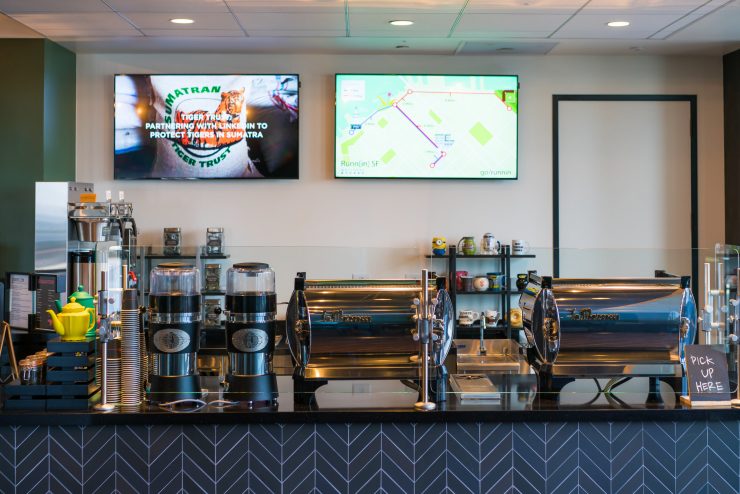
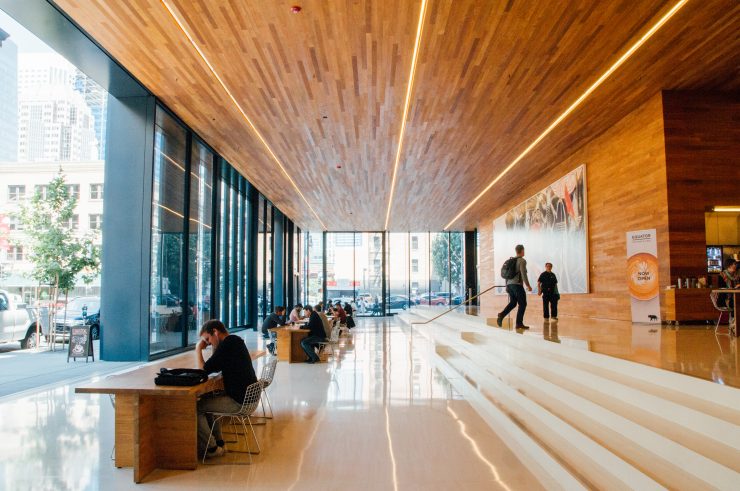
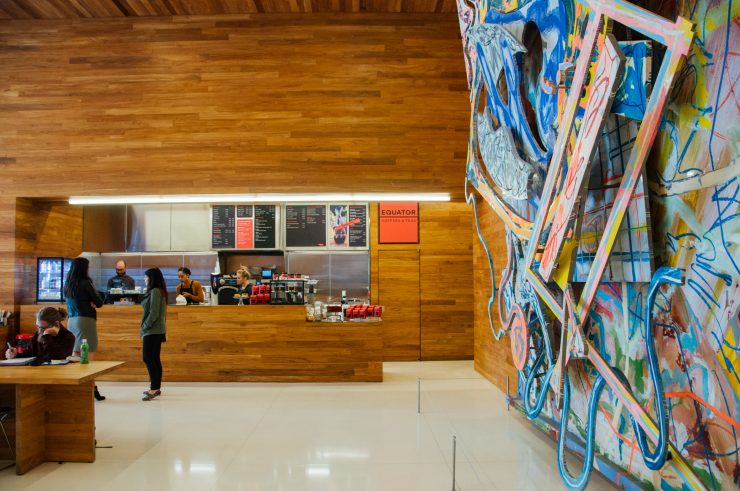
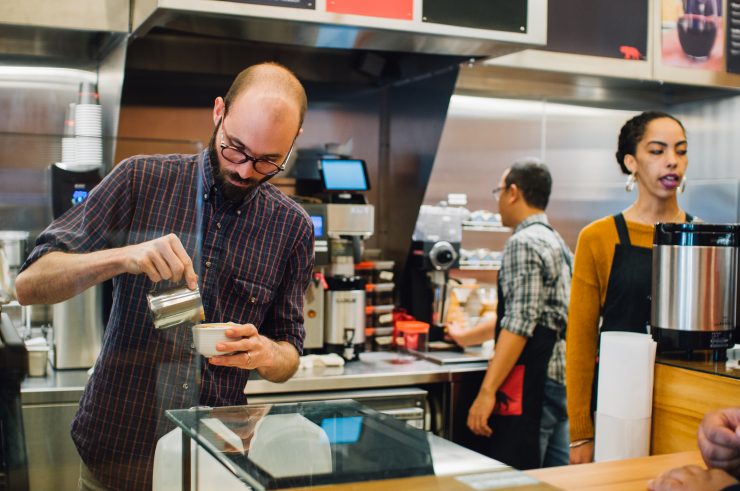
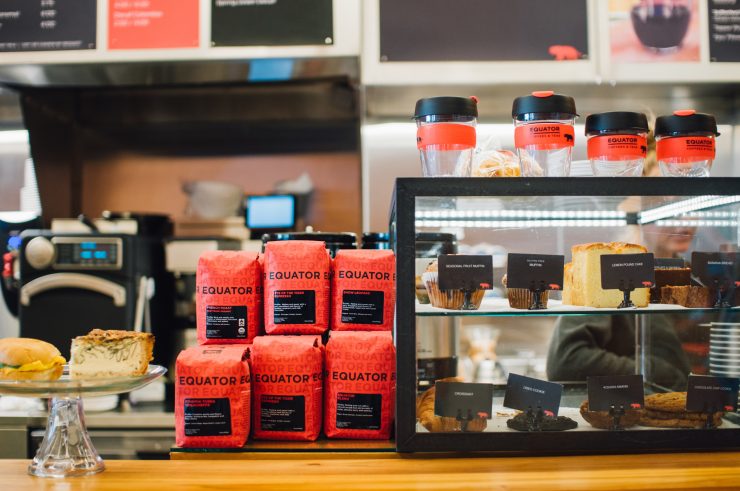
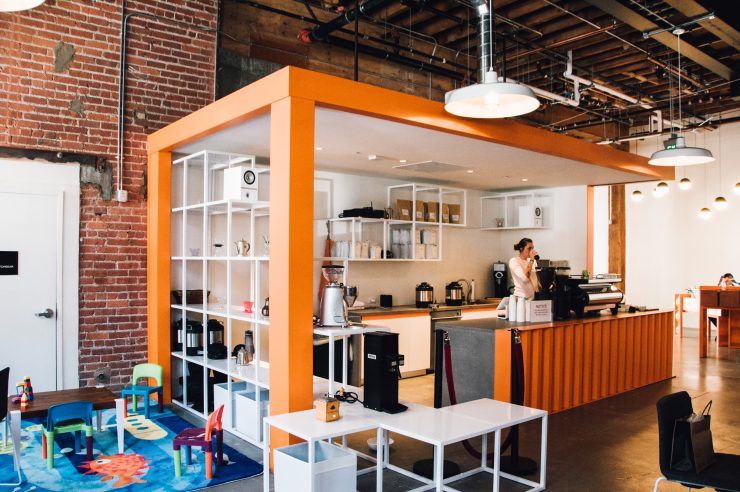
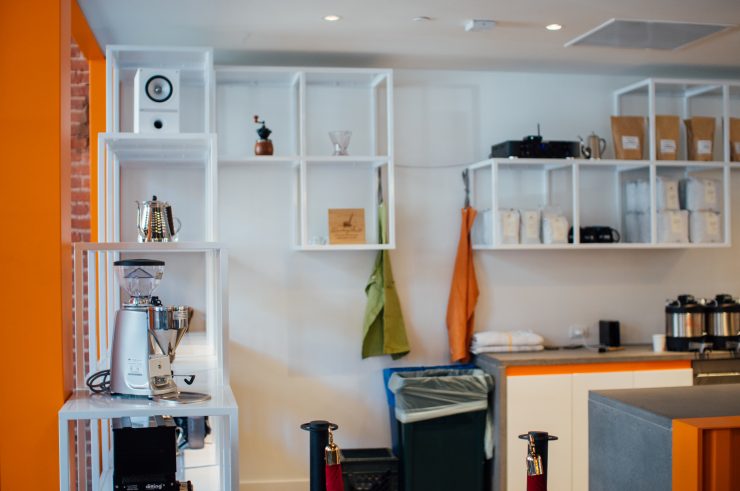
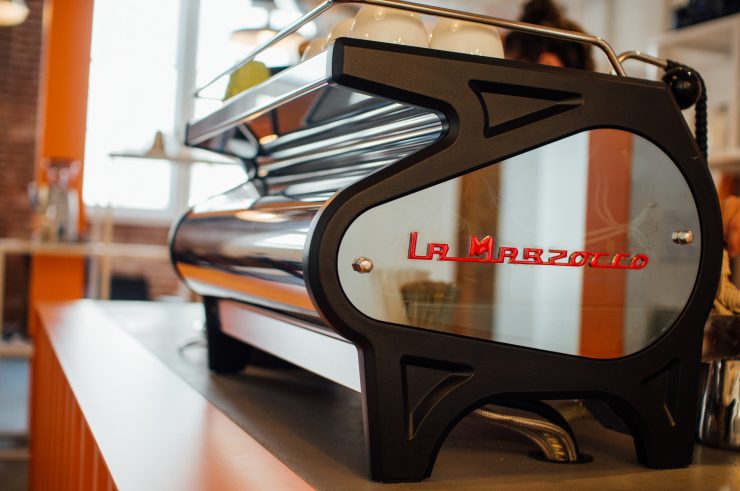
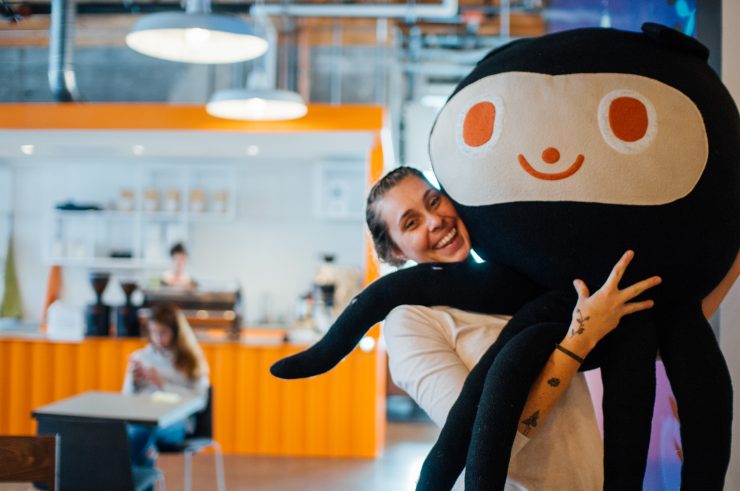
I went to this place with local friends and we had a blast here. The long happy hour at LA venues definitely ensures a full upstairs, but I'd recommend the quieter downstairs to enjoy your stuffed burger and fries!
ReplyDelete